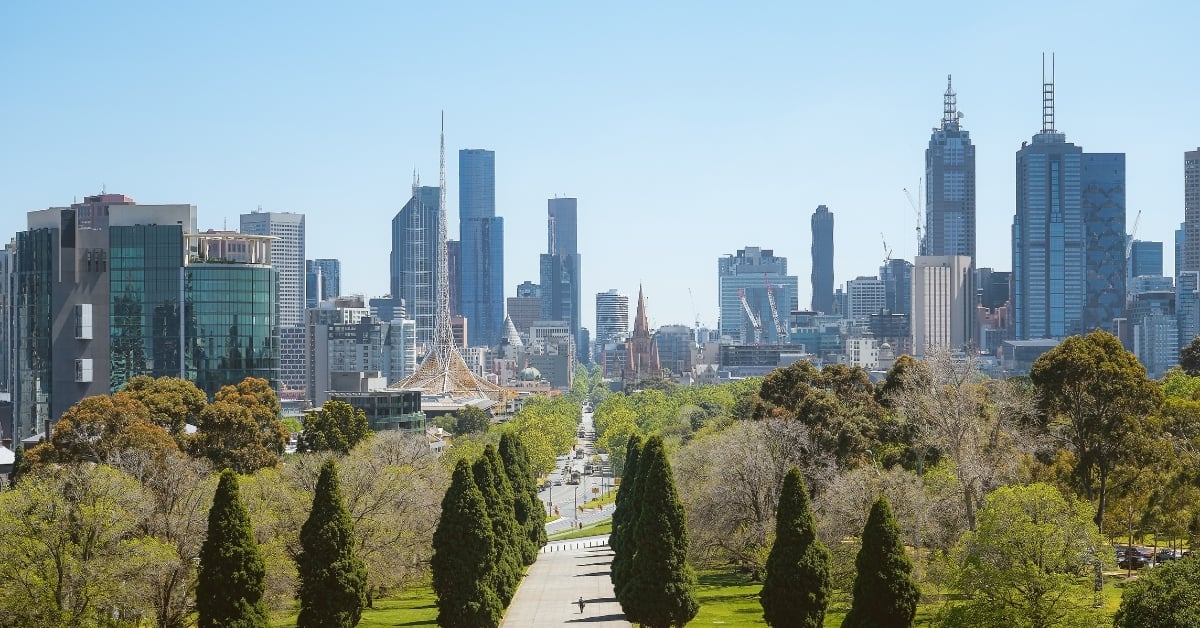What Is Land Tax?

Investing in real estate can be an exciting way to pave the way to financial freedom. The thrill of finding the right property with potential for capital growth can make it easy to forget the obligations that come with having a portfolio. Along with maintenance and compliance costs, you may also be liable for land tax.
Understanding land tax is not always straightforward. The amount you pay – and whether you pay it at all – can vary depending on where the property is located.
You may even qualify for an exemption. Let’s take a more detailed look at land tax, including a state-by-state breakdown.
What is land tax?
Land tax is an annual charge applied to the value of land, usually at the end of the financial year or as at midnight 31 December. The rate is typically calculated by the Valuer General and excludes any buildings or structures.
Each Australian state and territory sets its own rules and threshold for how this tax is assessed and collected. So, if your portfolio is spread across the country, you may have different obligations.
Who pays land tax?
Land tax isn’t just for one type of property. It can apply to residential homes and apartments, as well as commercial and industrial property. Investors should be aware that land tax can also be payable on car spaces, shops, factories, warehouses, vacant or rural land or even land leased from the Government. Holiday homes, regardless of whether they generate income or not, also attract land tax.
Land tax is often assessed on the total value of land held by an individual or entity. By placing investment properties in a fixed trust, the holdings may be split among the beneficiaries. It is important to seek independent tax advice, including the rules on how entities are treated in each state or territory.
Who is exempt from paying land tax?
The owner of any land is potentially liable to pay land tax; however, there are some exemptions. This includes a principal place of residence, a deceased estate, primary production land or land used for boarding houses, aged care and charitable institutions. It can also depend on local regulations, so be sure to research any state-based exemptions.
Specific limits for land tax are set by each state and territory but are subject to change. Importantly, if your land is valued at less than the threshold, you may also be exempt. For instance, in NSW, if the land value is below $1,075,000 then it doesn’t apply.
You may also be exempt if you are constructing or renovating a home you intend to occupy.
How is land tax calculated?
The Valuer General usually calculates the amount due based on the land only, without any buildings or structures. The exact method varies from state to state, so it is important to be across these processes.
For instance, in NSW, the unimproved values are averaged over three years to smooth any fluctuation. While in Queensland, the land tax rate depends on whether you are an individual, a company or a trustee.
Be mindful that land tax thresholds are subject to change. In 2023, the Victoria State Government changed its threshold, which impacted investors, particularly those with higher valued property, who faced higher liabilities.
LJ Hooker Head of Research, Mathew Tiller, said such changes to legislation highlighted the importance of investors spreading their portfolio across different states.
“The increased threshold resulted in some investors selling as it was an unexpected extra cost they hadn’t factored in, but we are now seeing, due to affordability, investors starting to enter the market and adjust their strategies to include this expense,” he said.
When do you pay land tax and how do you do it?
An assessment notice will be issued outlining your obligations, with a due date for the amount to be paid in full or to set up a payment plan arrangement.
If you have not put aside enough money to cover your land tax, a payment plan can offer a solution. It allows the payment to be broken down into smaller amounts and spread across a fixed period of time.
Every state and territory has a different way of collecting land tax, so make sure you’re across how it works. It is important to keep your land details, contact information and foreign status up to date as this may impact your obligations.
If you believe your assessment should be amended due to a change in circumstances, such as adding or removing a property or reporting a change to land use, it is important to contact your office of revenue as soon as possible.
Remember, every state and territory will have a different billing time. In Western Australia, expect to receive your notice of assessment between September and January, with payment due 49 days after it is issued.
Breaking down land tax by state
Land tax in New South Wales (NSW)
Land tax is calculated on the combined value of all your taxable properties. If your total land value falls below the general threshold of $1,075,000, you won’t pay land tax. However, if it rises above the threshold, tax applies to the portion over the limit. Certain properties, such as principal residence or land used for primary production, may be exempt. Read more on land tax in New South Wales (NSW).
Land lax in Queensland (QLD)
Land tax liability is based on the properties you own at midnight on June 30 each year. Individuals pay land tax if their total taxable land value is $600,000 or more. Different thresholds and rates apply for trustees, companies, and foreign owners, with some exemptions available for eligible properties. Read more on land tax in Queensland (QLD).
Land tax in Victoria (VIC)
Land tax in Victoria is an annual charge on the total taxable value of land you own, excluding exempt properties like your home. It applies to investment, commercial, industrial, and vacant land. From 1 January 2024, it’s payable when land holdings exceed $50,000 for individuals or $25,000 for trusts. Read more on land tax in Victoria (VIC).
Land tax in South Australia (SA)
The Valuer-General updates property values and land tax thresholds yearly. In 2025-26, properties under $833,000 pay no tax; higher values are taxed progressively. Exemptions include your main home or if an owner moves into aged care. Eligible build-to-rent projects get a 50 per cent land tax reduction, available until the 2039-40 financial year.
Land tax in Western Australia (WA)
Land tax is calculated on a sliding scale depending on the combined value of taxable land on June 30 each year. A flat rate of $300 applies for property valued $300,0001 to $420,000. Different rates then apply depending on the aggregated value. Exemptions include moving between homes, building a new home and deceased estates. A Metropolitan Region Improvement Tax (MRIT) may also be charged.
Land tax in Tasmania (TAS)
Land values are updated on July 1 annually. There is no charge on property with a taxable value up to $124,999. A different rate then applies starting at $50 plus 0.45 per cent for total land value $125,000 to $499,999, and up to $1737.50 plus 1.5 per cent for total land value of $500,000 and above. Exemptions include new homes used for long-term rental and home business concessions.
Land tax in the Australian Capital Territory (ACT)
Land tax is assessed quarterly and is made up of a fixed charge and a valuation charge. From July 1 2025, the fixed charge is $1693. The variable charge is calculated on its unimproved value over up to 5 years. Rental dwellings on the same property as your home, such as a granny flat, may incur land tax. It does not apply to commercial properties.
Land tax in the Northern Territory (NT)
There is no land tax in the Northern Territory.
What happens if you don't pay land tax?
Land tax is not something that can be ignored, as it can incur interest and penalties. If the notice of assessment remains unpaid, the revenue office may send for a debt collection agency and apply legal costs to your outstanding balance.
If you think the valuation is too high or too low, contact the authorising body in your state as soon as possible. There is a short window for objections to be lodged.
Do you need to pay land tax on apartments?
Buying an apartment doesn’t mean you avoid land tax altogether – but the impact is often smaller than for houses. That’s because the taxable land value is shared among all apartment owners, rather than being charged to one property alone.
The good news is that since apartments typically have a lower land component than freestanding homes, many owners end up paying minimal or no land tax. If you do need to pay tax on land, you can check a property’s land value through the State’s Valuer General.
LJ Hooker is here to help
When you are ready to start or add to your property portfolio, be sure to contact your local LJ Hooker agent. They are specialists who are experienced in helping people looking to get started in investing and can access property databases and valuation tools.
Remember, land tax doesn’t directly affect the price of an investment property, but it is important to factor it into total costs and long-term strategies.
Become a tax-smart investor by getting all your documentation in order from the start. This includes knowing what expenses can be claimed and declaring all rental-related income in your annual tax return.
Speak with an experienced LJ Hooker agent today who can help get started on building a property portfolio.
FAQs about land tax in Australia
Do you need to pay land tax when you sell your investment property?
If you are selling property, be mindful that you may still be obliged to pay the Land Tax for the following year if you have not settled before the assessment anniversary.
What is the purpose of land tax?
It is a key source for State Governments to fund public services such as education, health and policing.
Does every Australian state have land tax?
No, there is no land tax in the Northern Territory.
Is land tax deductible?
According to the Australian Taxation Office, if you earn rental income from a property, you can claim a deduction for land tax.
Is land tax the same as council rates?
No, land tax and council rates are different.
DISCLAIMER - The information provided is for guidance and informational purposes only and does not replace independent business, legal and financial advice which we strongly recommend. Whilst the information is considered true and correct at the date of publication, changes in circumstances after the time of publication may impact the accuracy of the information provided. LJ Hooker will not accept responsibility or liability for any reliance on the blog information, including but not limited to, the accuracy, currency or completeness of any information or links.
Share


